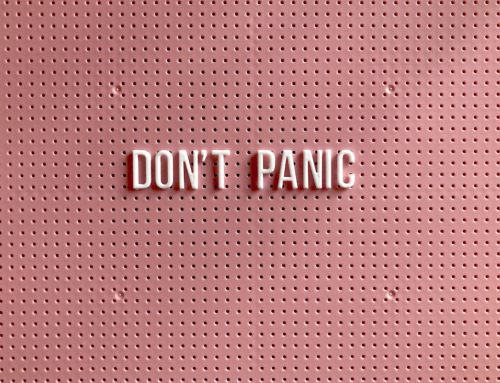What is Brain Fog?
Brain fog is an exhaustion that seeps through our entire being. It’s like landing on a fuzzy TV channel and no matter what you do- you can’t get a clear picture. Navigating ourselves out of this fog is difficult when thinking becomes a herculean task. You become lost and don’t know where to start.
Signs of Brain Fog
Brain fog is not a medical condition, but it’s an experience of how we think or feel. It is also not limited to Anxiety and can be associated with many different conditions. It can create experiences like:
- Difficulty concentrating or remembering what you were doing
- Trouble putting thoughts or words together
- Forgetfulness
- Exhaustion
- Mental Disorganization
- Communication Struggles
- Diminished Productivity
Tips to Help Brain Fog Related to Anxiety
Brain fog is a challenge within itself, but adding anxiety can become exasperating. Anxious thoughts feel like the only thing moving and awake within us. Then there are worst-case scenarios that fly through our minds. On top of this there is the inability to relax. We’re tired because of anxiety and brain fog amplifies this, but we can’t get the mental and physical rest we need. Rest assured, though, there are ways to clear brain fog and reduce anxiety at the same time.
- Manage your stress– all things listed below can help manage stress, but it’s important to identify what triggers your stress and get it under control.
- Breathe– you can find tons of videos or guides online with different breathing techniques or exercises.
- Eat something nourishing– eat what makes your body feel good.
- Avoid multi-tasking– If you’re someone who’s constantly switching from one task to another, and you have a hard time remembering what you’re supposed to be doing, it might be time to try doing one thing at a time. Making lists can help!
- Exercise– moving your body around boosts thoughts and emotions. It can also increase focus. Don’t forget to exercise your brain too. Things like learning a second language, a new dance step, working on language or math puzzles, or learning a new skill can work out your brain. Anything that challenges your brain!
- Stay hydrated– sometimes we start feeling foggy when we’re dehydrated, so be sure to keep drinking water.
- Rest– aim for about 7-8 hours per night. A nap during the day can be rejuvenating, but sometimes rest is simply being still in mind and body. Sometimes that looks like a weekend lying around!
- Reduce stimulation– give your brain a break from screens, lights, noises, and physical sensations to have some quiet time.
- Spend time in nature– getting outside can be soothing for the mind, body and soul. Stepping outside for even a moment can do wonders.
- Journal– journaling can help us turn inward and reflect on your thoughts and feelings, hopes and dreams, gratitude, and appreciation. It can also help you keep track of yourself when you feel forgetful.
- Find flow– flow is being fully immersed in whatever you’re doing. When you are in your flow all other thoughts melt away, and you are focused and enjoying what you’re up to in that moment. When you’re in flow, your mind is clear. You can find your flow by trying different activities you enjoy.
- Take time for a mindless activity– this may sound counterproductive, but setting aside 30 minutes or 1 hour of your day to watch a show, watch videos or play a video game can actually give your brain a break.
- Unleash your creative side– creativity clears the brain because you’re focused and creating something new.
- Connect with others– when we connect with others we take ourselves out of our own heads and out of the fog.
When to get emergency help
If you think you may hurt yourself or attempt suicide, call 911 or your local emergency number immediately.
Also consider these options if you’re having suicidal thoughts:
- Call your doctor or mental health professional.
- Call a suicide hotline number — in the U.S., call the National Suicide Prevention Lifeline at 1-800-273-TALK (1-800-273-8255). Use that same number and press “1” to reach the Veterans Crisis Line.
- Reach out to a close friend or loved one.
- Contact a minister, spiritual leader or someone else in your faith community.






